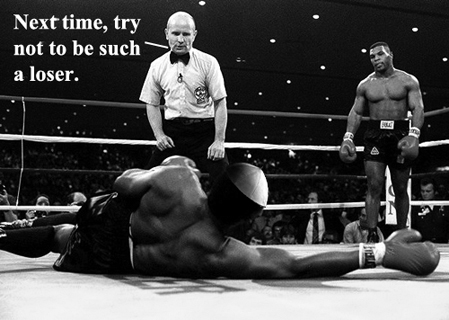Modernity as another in a line of Catholic schisms…
Christian Theology, you ask? Well…that there is one big can of worms. Actually, it’s more like a 2000 year old tangle of cobwebs. Dusty. Old. Took a really, really long to accumulate. So, so many threads. And once you walk into them, engaging with them, trying to untangle them…the strands start falling apart. You walk in and the strands get sticky and clingy and after awhile…the strands don’t resemble the thing you first looked at and might have found attractive in the first place. So why bother trying to untangle that which cannot be untangled? And falls apart when you do try to untangle it?
Not an easy answer, really. In fact, even for those highly schooled in the subject, the strands of Christian theology are nearly impossible to separate neatly into a nice, organized linear argument that most people can easily follow. Put another way, the explanation as to why God is real is difficult to fathom on a rational basis. And that is the problem. Because if you can’t explain it to a six year old child in a way they can understand, how exactly does one explain it? I mean…you know…the origin of everything? Morality? Why people suffer if God is a just and humane God. Why human moral history separates us from all of God’s other creatures. Does life have purpose? (1) These are age old questions people have wrestled with for eons but still struggle with at a personal and institutional level today. And really, they are vexing questions cosmologists and physicists go deaf, dumb and blind about trying to answer. The scientists are incapable of even formulating the questions correctly, let alone finding an answer.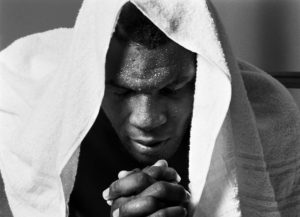
To pose the predicament another way, the physical explanation for how the universe came into existence has little to do with crime, sin, war, genocide, government corruption, love and hate, personal success and personal failure, or the exact relationship between the sexes. Put simply, it is the predicament of the Human Condition that theology attempts to engage with. What does God want? From both individuals and humanity as a whole? It is a predicament all people find themselves in regardless of station in life, inherited talent, the language they speak or don’t speak, family background, the meaning and purpose of human sexuality or for that matter, the circumstances under which children come into the world in the first place. All religions, at one level or another, deal in the same questions.
From an intellectual standpoint, the tangle of Christian cobwebs starts at the beginning. To name some of the big issues: Was Jesus a man? Is he God? Or is He both? The Trinity Doctrine of Father, Son and the Holy Spirit. The Doctrine of Original Sin. Pre-destination. Double Pre-destination. The Doctrine of Purgatory. Given all the doctrinal permutations, is it any wonder the history of Christianity is filled with sectarian strife, heresies, Reformations, Counter Reformations, and Inquisitorial councils seeking to stamp out one false idea or another. The 2000-year history of Europe can be traced through doctrinal differences and the response of secular rulers to the theological gyrations of the Papal Empire.
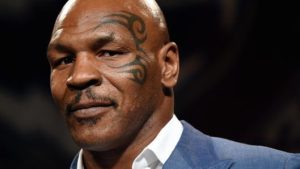 In recognition of this tangle, The Church established the use of creeds or statements of belief; the Nicene Creed being the best example. For Christians lacking the interest or ability to dissect theological arguments, creeds or statements of belief become the means to establish discipline within congregations of the faithful. Have the faithful state the creed every Sunday until it becomes second nature. Don’t worry about the intellectual basis of the Creed… wink, wink, nod, nod. There are priests to do the heavy mental work of doctrinal interpretation. “You leave that up to us”, say the priests. “Place your tithe here.” There is a whole hierarchical order of prelates, to wit…priests, bishops, arch-bishops, cardinals and the El Supremo of El Supremos, the vicarious representative of Christ Himself on Earth…The Pope. Other churches use a hierarchical ecclesiastical structure, as well, including The Anglican Church and to a lesser extent the Scots Presbyterian Church. What the Churches did in the Old World was to exert their authority in conjunction with secular power whether Roman Catholic, Calvinist or Anglican.
In recognition of this tangle, The Church established the use of creeds or statements of belief; the Nicene Creed being the best example. For Christians lacking the interest or ability to dissect theological arguments, creeds or statements of belief become the means to establish discipline within congregations of the faithful. Have the faithful state the creed every Sunday until it becomes second nature. Don’t worry about the intellectual basis of the Creed… wink, wink, nod, nod. There are priests to do the heavy mental work of doctrinal interpretation. “You leave that up to us”, say the priests. “Place your tithe here.” There is a whole hierarchical order of prelates, to wit…priests, bishops, arch-bishops, cardinals and the El Supremo of El Supremos, the vicarious representative of Christ Himself on Earth…The Pope. Other churches use a hierarchical ecclesiastical structure, as well, including The Anglican Church and to a lesser extent the Scots Presbyterian Church. What the Churches did in the Old World was to exert their authority in conjunction with secular power whether Roman Catholic, Calvinist or Anglican.
Enter the New World and separation of church and state. There is no state sanctioned religion in the United States and it’s that way on purpose. The Constitution of the United States prohibits it. The founding fathers recognized the corruption inherent in marrying secular state power with ecclesiastical power. And the result over time? A veritable cornucopia of new sects, creeds and beliefs emerged; and the state does not recognize any one of them as being superior to any of the others. Further, the state derives its legitimacy from consent of the people rather than what it had been for the 1500 years previously, namely The Divine Right of Kings; i.e. secular authority deriving its authority from the consent of the governed rather than the will of God. Since the will of God is unfathomable, except by priests, of course, the Kings will was unquestionable. The only person on Earth who retains that sort of unquestioned infallibility is the Pope. Nonetheless, I can assure you, all popes are fallible. If they weren’t, church doctrine wouldn’t change from one pope to the next, Christian theology wouldn’t be the tangle it’s always been and the Christian God could be explained to a child without having to resort to superstitious nonsense, hand waving, and saying “just trust me”.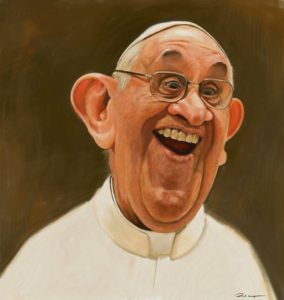
Which leads back to Pope Francis, or as we like to call him The Bubblegum Pope; i.e. he keeps your jaw busy but loses his flavor pretty quickly. Unfortunately for the Christian world, his predecessor got the heave-ho. As a reminder, Pope Benedict XVI resigned, the first to do so in 719 years. We would also argue Benedict was the first pope to do so ever, since the first one to do it was in the middle of a medieval power struggle and probably didn’t do it of his own free will. Benedict resigned for public relations. Since the church, like many institutions these days, is run by public relations departments and not run by what churches are supposed to be run by which is a higher moral calling, why not swap out popes? Benedict had substantial academic credentials and tended to speak in complete extemporaneous paragraphs filled with literary, biblical and historical references. You see, he is an educated man in a way Francis is not. What the church needed was somebody that would appeal to people the same way Disneyland appeals to children; something easy to digest in the TV and internet eras. The pope that faced down Communism Francis is not. The church also needed to separate itself from the wretchedness of the pedophilia scandal. “Isn’t the new pope great? He doesn’t look like a pedo at all!” So out with the old pope and any vestiges of claims to moral authority. Francis is simply meant to appeal to TV audiences, be they Roman Catholic, other Christian, Muslim, Jew or what have you. All comers welcome regardless of creed or belief. You don’t even have to be Roman Catholic to be a Roman Catholic! Because being a Roman Catholic means nothing any more. No meaningful distinctions are made in order to appeal to as wide an audience as possible. Such is the way they are trying to solve their public relations problem. It’s the multicultural version of Catholicism. Francis can’t even bring himself to defend Christians in Muslim countries being slaughtered by the thousands for fear of causing offense. In other words, the Roman Catholic Church has succumbed to the age of modernity like large parts of academia and large part of the body politic in Western nations. It too takes part in Moralistic Therapeutic Secularism. Want proof? Instead of defrocking, excommunicating and handing over pedophile priests to the secular authorities, they handed them over to psychologists claiming expertise in the rehabilitation of pedophiles. By the way, there is no such expertise. The only expertise in pedophilia resides with the hangman’s noose or prison. And once the shrinks were done with the pedo-priests and pronounced them cured what happened? They were released back into circulation and started abusing kids again like they had always done (2). So much for modern therapeutic methods. And, so is the method of modernity as practiced by the Roman Catholic Church under Pope Francis…politics, public relations, and liberation theology. But no claims to moral rectitude as practiced for the last 2000 years.
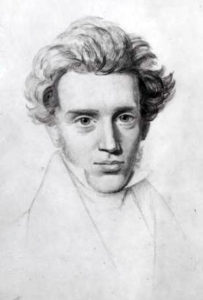 Which leads us back to Mr. Tyson. He, at least, seems genuine; if only for his suffering; and, the suffering is genuine, whether self-inflicted or not. The dabbling in philosophy seems to us like another means to gain control of a chaotic life; to bring some sense to it. And whether one wants to strike out on one’s own into philosophy or to make a stab at bringing sense to Christian theology, we sincerely wish him the best of luck. You see, we think Soren Kierkegaard had it about right. Belief in the divine is a supreme leap of faith across the gap of the unknown. For some people the gap may be a crack in the sidewalk and easily traversed with a meager emotional leap. For others, the gap is simply too wide to span with reason and therefore unbridgeable. Perhaps Misters Tyson and Kierkegaard should provide for us examples of exactly how it’s done. Pope Francis…not at all.
Which leads us back to Mr. Tyson. He, at least, seems genuine; if only for his suffering; and, the suffering is genuine, whether self-inflicted or not. The dabbling in philosophy seems to us like another means to gain control of a chaotic life; to bring some sense to it. And whether one wants to strike out on one’s own into philosophy or to make a stab at bringing sense to Christian theology, we sincerely wish him the best of luck. You see, we think Soren Kierkegaard had it about right. Belief in the divine is a supreme leap of faith across the gap of the unknown. For some people the gap may be a crack in the sidewalk and easily traversed with a meager emotional leap. For others, the gap is simply too wide to span with reason and therefore unbridgeable. Perhaps Misters Tyson and Kierkegaard should provide for us examples of exactly how it’s done. Pope Francis…not at all.
- A History of the Jews; Johnson, Paul; Harper and Row; New York; 1987; p161.
- The Grand Design; Hawking, Steven; Bantam Books; 2010; pp 32-33
- Report says clergy sexual abuse brought ‘smoke of Satan’ into Church; Filteau, Jerry; Catholic News Service; February 27, 2004
- The Elements of Philosophy, A Compendium for Philosophers and Theologians; Wallace, William; Wipf & Stock; Eugene; 1977
- Christianity, The First Three Thousand Years; MacCulloch, Diarmaid; Viking Penguin; New York; 2010

